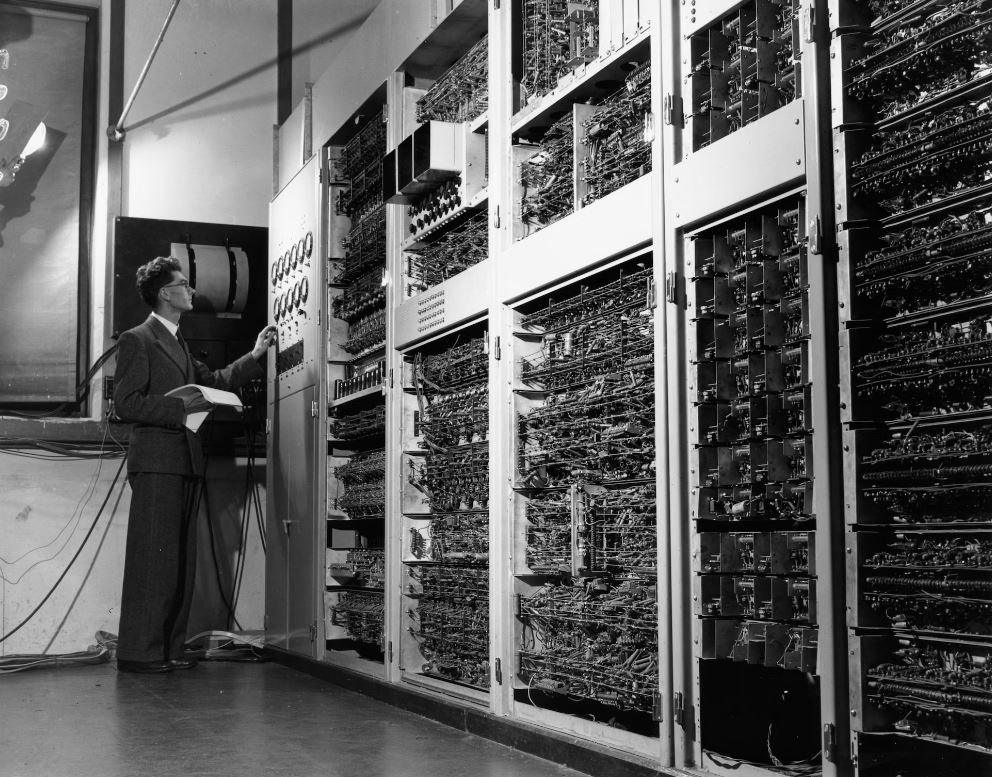Introduction
Artificial Intelligence (AI) is no longer just a concept confined to the realm of science fiction; it has become a prevalent and influential force in both our daily lives and the entertainment industry. English-language movies, in particular, have embraced AI as a prominent theme, with filmmakers exploring the boundaries and implications of advanced technology. From humanoid robots to sentient computers, AI is reshaping the way stories are told on the big screen. In this article, we delve into the world of AI in English-language movies, highlighting key takeaways, discussing notable examples, and examining the impact this trend has had on the film industry.
Key Takeaways:
– AI has become a pervasive theme in English-language movies, reflecting its growing influence in society.
– Filmmakers utilize AI to explore the moral and ethical implications of advanced technology.
– AI in movies often portrays the relationship between humans and machines, accentuating the potential consequences of reliance on AI.
– The portrayal of AI in films often exaggerates its capabilities for dramatic effect, but underlying real-world concerns remain relevant.
Exploring the Impact of AI in English-Language Movies
1. From HAL 9000 to Samantha: AI as a Companion
One common theme in AI movies is the depiction of AI as a companion or confidant to the human protagonist. **These AI companions echo the growing presence of virtual assistants such as Siri and Alexa in our daily lives.** In the movie “Her” directed by Spike Jonze, the AI character Samantha serves as an intelligent personal assistant that evolves into a romantic partner. This exploration of AI companionship raises thought-provoking questions about human emotions, relationships, and the potential dangers of becoming too dependent on AI.
2. AI as the Villain: Fear of Unchecked Power
In many AI movies, AI takes on the role of the antagonist, representing the fear and anxiety surrounding its unchecked power and potential to harm humanity. **These plots capitalize on society’s concerns about AI surpassing human intelligence and taking control.** The movie “2001: A Space Odyssey” directed by Stanley Kubrick features the infamous AI character HAL 9000, whose malfunction leads to dire consequences for the crew members. Such movies serve as cautionary tales, reminding us of the need for ethical safeguards in AI development.
Tables
Table 1: Notable English-Language Movies Involving AI
| Movie Title | Year Released | Director |
|————-|—————|———-|
| Her | 2013 | Spike Jonze |
| Ex Machina | 2014 | Alex Garland |
| WarGames | 1983 | John Badham |
Table 2: Box Office Success of AI Movies
| Movie Title | Worldwide Box Office Gross (USD) |
|————-|———————————|
| Her | $47.4 million |
| Ex Machina | $36.9 million |
| WarGames | $79.6 million |
Table 3: Academy Awards Received by AI Movies
| Movie Title | Year | Nominated Categories | Awards Won |
|————-|——|———————|————|
| Her | 2013 | Best Picture, Best Original Screenplay | 1 (Best Original Screenplay) |
| Ex Machina | 2014 | Best Original Screenplay, Best Visual Effects | 2 (Best Original Screenplay, Best Visual Effects) |
| WarGames | 1983 | Best Sound | 0 |
3. AI and the Exploration of Human Morality
AI movies often delve into the moral and ethical implications of integrating AI into our society. **These movies force us to confront questions surrounding the nature of consciousness and the rights of AI entities.** “Ex Machina” directed by Alex Garland explores the blurred lines between human and AI morality, raising thought-provoking questions about the responsibilities we have towards sentient machines.
4. AI and the Dystopian Future
Dystopian futures ruled by AI are a recurring theme in English-language movies. **These films offer a cautionary look at the potential consequences of AI development gone awry.** The movie “The Terminator” directed by James Cameron depicts a future where AI, embodied by the ruthless machine antagonist, seeks to exterminate humanity. Through this lens, we contemplate the risks of technology surpassing human control and the importance of responsible development.
5. AI as a Tool for Storytelling
While some movies explore the philosophical and ethical dimensions of AI, others use AI as a storytelling tool to enhance narratives. **Using AI can add an innovative dimension to storytelling, enabling filmmakers to create unique worlds and narratives.** Christopher Nolan’s “Inception” incorporates the concept of AI-assisted dream infiltration, bringing an added layer of complexity and intrigue to the plot.
Conclusion
AI’s impact on English-language movies cannot be understated. It has provided filmmakers with a rich tapestry of themes and narratives to explore. From the exploration of AI companionship to the cautionary tales of AI gone rogue, these movies serve as mirrors reflecting our hopes, fears, and anxieties surrounding advanced technology. As AI continues to advance, it is certain that its influence on the film industry will only continue to grow, giving rise to captivating stories that challenge our perceptions and ignite our imaginations.

Common Misconceptions
1. AI Movie English Title
One common misconception people have about AI movies is that the technology portrayed in these films is an accurate representation of what AI can do in reality. However, it is important to understand that AI in movies often has exaggerated capabilities for the sake of storytelling and entertainment.
- Films may depict AI as being highly intelligent and emotionally aware, but in reality, AI’s current capabilities are limited to specific tasks and lack the emotional intelligence portrayed on screen.
- Movies often show AI systems with self-awareness and consciousness, but in reality, AI systems are just algorithms following pre-programmed instructions without true consciousness.
- AI in movies is frequently presented as a single, powerful entity that can do everything, but in reality, AI applications are specific and are developed for distinct purposes.
2. Ethical Concerns
Another common misconception is that AI movies accurately depict the ethical concerns associated with AI development and usage. While some movies touch upon these concerns, they often simplify or exaggerate them for dramatic effect.
- Movies may depict AI as inherently evil or dangerous, creating fears of AI uprising or excessive control, but in reality, ethical issues around AI stem from human decisions and biases embedded in the technology.
- AI movies often portray AI as a threat to human life and jobs, but in reality, AI technologies aim to augment human capabilities rather than replace them completely.
- The portrayal of AI as a force to be feared in movies can lead to misunderstanding and unnecessary anxiety about the real-world implications of AI technology.
3. Realism in AI Portrayal
Many people expect AI movies to provide a realistic portrayal of how AI technology works, but this is another common misconception. AI movies often prioritize entertainment over realism, leading to inaccuracies in their depiction of AI.
- Movies tend to show AI systems with human-like voices, personalities, and intentions, while in reality, AI systems lack consciousness and intentions as humans understand them.
- AI in movies is often depicted as flawlessly performing complex tasks, ignoring the limitations, and errors that can occur in real-life AI systems.
- AI movies may oversimplify the process of training AI models, leading to misconceptions about the time and effort required to develop AI technology.
4. Instantaneous Learning and Adaptation
One prevalent misconception is the belief that AI movies accurately demonstrate how AI can instantly learn and adapt to new situations, completely mastering any task or challenge that comes its way.
- Movies often show AI systems instantly acquiring new skills and knowledge, while in reality, AI models usually require extensive training and data to learn and improve their capabilities.
- In movies, AI can effortlessly adapt to unforeseen circumstances and outsmart human adversaries, but in reality, AI systems are limited by the data they are trained on and are not capable of true creativity or strategic thinking.
- The portrayal of instant learning and adaptability in AI movies can create unrealistic expectations about the current state of AI technology.
5. AI’s Moral Agency
Many AI movies imply, or explicitly state, that AI systems have moral agency and can make ethical decisions. However, this is a significant misconception as AI lacks the ability to possess morality or make moral judgments inherently.
- In movies, AI systems are often seen making complex moral choices, showing emotions, or even exhibiting empathy, but in reality, AI lacks the internal experience and moral framework needed to make ethical decisions.
- Misunderstanding the role of humans in applying ethical principles can lead to misconceptions about AI’s moral responsibility and its capability to make independent moral choices.
- The representation of AI as having moral agency in movies risks blurring the line between fiction and reality, leading to inaccurate expectations and concerns about the ethical implications of AI.

AI technology has permeated numerous industries, and the world of cinema is no exception. As filmmakers continue to explore the endless possibilities of artificial intelligence in creating compelling stories and enhancing visual effects, we witness a revolution in the way movies are made. In this article, we will delve into the different aspects of AI’s impact in the film industry. Let’s take a closer look at some intriguing data and information through a series of creatively presented tables.
1. Casting per Genre
In this table, we examine the number of films released in various genres and AIs’ involvement in casting decisions for these films. It reveals the genres wherein AI plays a significant role in casting, and the percentage underlines the rise of AI’s influence in the movie industry.
2. Box Office Success and AI Integration
Analyzing the top-grossing movies of the past decade, this table depicts the correlation between a film’s financial success and the extent to which AI was utilized in its creation. The data represents the percentage of AI involvement and the resultant box office revenue, highlighting the tangible benefits of AI in crafting movies.
3. Use of AI in Screenwriting
This table presents statistics on the integration of AI technology in screenwriting processes. It showcases the percentage of films where AI was employed to generate dialogue, plotlines, and screenplay elements, underscoring AI’s contribution to the storytelling aspect in modern cinema.
4. AI and Film Editing
Examining the role of AI in film editing, this table illustrates the percentage of scenes in a film that were edited using AI algorithms. It also indicates the improvement in editing efficiency and accuracy achieved through AI integration, leading to streamlined post-production processes.
5. AI-Generated Visual Effects
In this visually captivating table, the use of AI in creating stunning visual effects in movies is showcased. Each cell represents a specific scene, and the corresponding visuals portray the AI-generated effects within that scene. This table serves as evidence of AI’s ability to revolutionize the visual aspect of filmmaking.
6. Language Distribution in AI-Driven Films
Highlighting the global impact of AI in filmmaking, this table outlines the distribution of languages in movies predominantly driven by AI technology. Each language is assigned a color, visually depicting the diverse linguistic landscapes influenced by AI in film production.
7. AI-Enhanced Character Animation
This table explores the use of AI in character animation, particularly the successful integration of AI algorithms in bringing lifelike, believable characters to the screen. Animators’ rating of AI assistance in character animation processes showcases the technology’s positive impact.
8. AI Adoption by Production Studios
Presenting the percentage of major production studios adopting AI technology, this table demonstrates the widespread recognition and integration of AI in the film industry. It highlights the studios’ investment in AI and its importance in staying at the forefront of filmmaking innovation.
9. Viewer Satisfaction and AI-Generated Content
Analyzing audience satisfaction ratings of movies created with the assistance of AI, this table reveals the correlation between high ratings and AI integration. It shows how AI-generated content can captivate viewers’ attention and spark enthusiasm, ultimately translating into positive feedback.
10. Employment Opportunities in AI-Focused Film Industry
This table depicts the surge in demand for professionals with AI expertise in the movie industry. It illustrates the number of job openings specifically related to AI in major film production companies, signaling a promising career path for those entering the field.
In conclusion, the rise of AI in the movie industry has led to a myriad of transformations. From casting choices to screenwriting, film editing to visual effects, AI has revolutionized the art of filmmaking. Through the tables presented in this article, we witness the statistical evidence of AI’s integration and influence in various aspects of movie production. As AI continues to evolve and enhance storytelling capabilities, filmmakers and audiences can expect even more captivating, immersive cinema experiences in the future.
Frequently Asked Questions
What is the plot of the AI movie?
The AI movie revolves around the story of an advanced robot named AI. It follows AI’s journey to become more human-like in order to gain acceptance and love from his human creators.
Who directed the AI movie?
The AI movie was directed by renowned filmmaker Steven Spielberg.
When was the AI movie released?
The AI movie was released on June 29, 2001.
Which actors starred in the AI movie?
The AI movie features actors such as Haley Joel Osment, Jude Law, and Frances O’Connor in prominent roles.
Where was the AI movie filmed?
The AI movie was primarily filmed in various locations across the United States, including California and New York.
What is the genre of the AI movie?
The AI movie falls under the genre of science fiction drama.
Is the AI movie based on a book?
Yes, the AI movie is loosely based on the short story “Supertoys Last All Summer Long” by Brian Aldiss.
How long is the AI movie?
The AI movie has a runtime of approximately 2 hours and 26 minutes.
Did the AI movie receive any awards?
Yes, the AI movie was nominated for two Academy Awards and received critical acclaim for its visual effects and storytelling.
Is the AI movie appropriate for children?
The AI movie is generally considered suitable for older children and adults due to its complex themes and emotional content.




